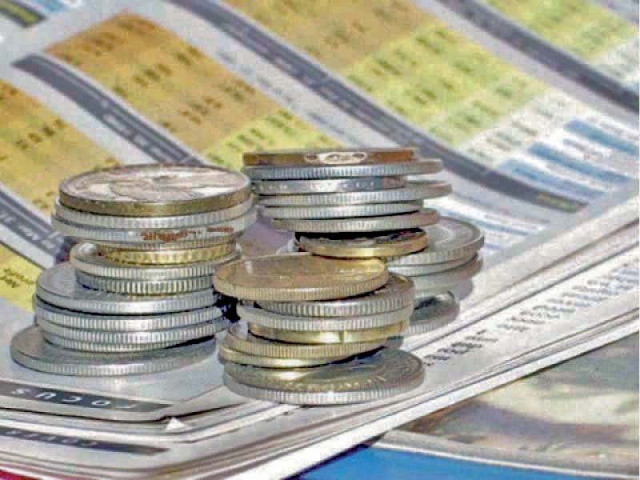Govt may cut FED on soft drinks
Considers further reducing general sales tax of 3% to either 2% or 1%

The government is also considering reducing the further general sales tax (GST) of 3% to either 2% or 1% for fiscal year 2020-21, starting July, said sources in the Federal Board of Revenue (FBR).
The 3% further tax is charged over and above the 17% standard GST from the buyers who are not registered with the FBR.
Authorities are also considering reducing FED on cement from Rs100 per bag to Rs75, said sources in the FBR. However, the FBR is not in favour of reduction as this may dent its revenues.
FED on beverages may be reduced from 13% to 11.5% - the level from where the duty was jacked up by the Pakistan Tehreek-e-Insaf (PTI) government in the last budget, they added.
Industries Minister Hammad Azhar may unveil the budget on June 12 as the portfolio of finance minister rests with Prime Minister Imran Khan. There are also reports that the government again wants to replace FBR Chairperson Nausheen Javed, who was appointed just two months ago.
Javed is the fourth FBR chairperson in the past almost two years and any change at this stage may not bode well for the organisation. It also highlights a lack of seriousness on the part of the government in running the FBR - the most critical organisation for the country’s economic survival.
The government is also facing the challenge of striking a balance between giving relief to various sectors of the economy and imposing additional taxes to satisfy the International Monetary Fund (IMF).
The beverages sector has been adversely affected by heavy taxation, tax evasion and availability of counterfeit products that have put the two largest players - Coca-Cola Pakistan and Pepsi Co Pakistan - at a disadvantage.
The overall tax rate for carbonated soft drinks in Pakistan is one of the highest in the region.
The industry claims its sales volume, which dropped 2% in the previous fiscal year, has plunged close to 40% this year. Its claim is that before Covid-19, the sales were negative 9% in this fiscal year.
Beverages are highly taxed. The existing tax rate is 30%, which includes 13% FED and 17% sales tax.
Despite the increase in FED in the last budget, the government’s FED collection from beverages stood at Rs22 billion by the end of May.
It had estimated receiving close to Rs32 billion in the current fiscal year and only one month is left.
The FBR’s Year Book 2018-19 showed that FED collection from the beverages sector remained almost constant in past years despite a significant surge in rates.
After the last budget, the companies had increased the one-and-a-half-litre bottle price by 11% to Rs100. It also affected their sales.
Coca-Cola Beverages Pakistan Limited and Pepsi Co were demanding up to 30% cut in the FED, which sources said was not feasible due to revenue implications.
Cement
Sources said there was also a proposal to cut FED on cement from Rs2 per kilogramme to Rs1.75 per kg. This will reduce the tax on a 50kg cement bag from Rs100 to Rs75.
The government’s tax collection from the cement sector has been on the rise for the last five years, owing to the constant increase in FED rates. The FBR’s Year Book 2018-19 showed that it collected Rs57.5 billion in the last fiscal year on account of FED on cement. GST collection was in addition to that.
It had expected to take FED collection to Rs75 billion in the current fiscal year but so far it could collect Rs60 billion despite a 14.2% increase in rates in the previous fiscal year.
Before the Covid-19 struck the world, cement dispatches were on the rise. However, the All Pakistan Cement Manufacturers Association (APCMA) stated that producers sold 3.52 million tons of cement in April 2020, down 24% year-on-year from 4.6 million tons in April 2019.
Domestic consumption stood at 3.27 million tons, down 19% from 4.04 million tons due to the coronavirus outbreak.
Further tax
Sources said there was also a proposal to reduce the further GST from 3% to either 2% or 1%. In case of 1% reduction, the FBR will take a hit of Rs11 billion.
However, the further tax is unjustified as it has been levied to compel people to get registered with the sales tax department - a function that the FBR should perform by improving its administration.
Through the Finance Act 2018, the further tax was increased from 2% to 3%. The cumulative GST rate in Pakistan is currently 20% since less than 150,000 businesses are registered with the FBR. The 20% rate is one of the highest in the world.
Published in The Express Tribune, June 9th, 2020.
Like Business on Facebook, follow @TribuneBiz on Twitter to stay informed and join in the conversation.



















COMMENTS
Comments are moderated and generally will be posted if they are on-topic and not abusive.
For more information, please see our Comments FAQ